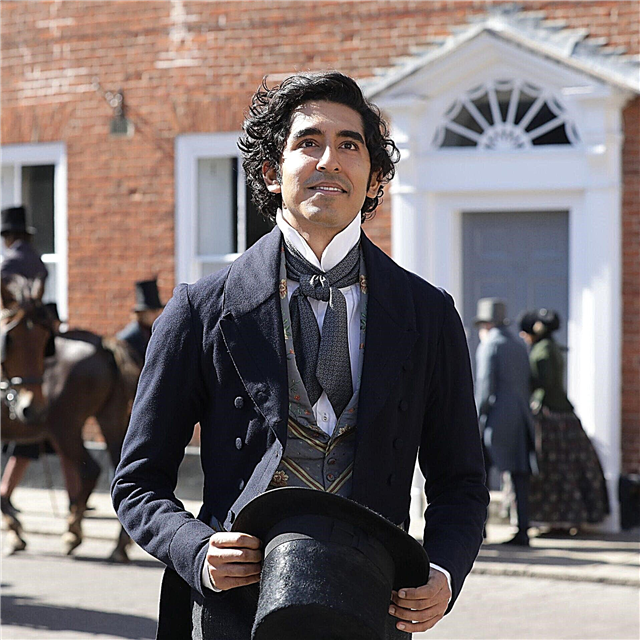At all times, the stars have fascinated people as points of meditation, as an excuse to philosophize and spiritually enrich themselves. Many singers sing the praises of emptiness, muses bathe in the reflections of the stars, but who are they, astronomers who changed the idea of these celestial wonders, and thus changed the idea of life.
The universe has always attracted with its beauty and mystery, and in this regard, over the years, magnificent photographs of space have been created. Top 10 Astronomers... You might be interested in the article 10 Best Russian Space Missions.
10. Edwin Hubble (1889 - 1953)
First, Hubble actually expanded the universe, proving that its boundaries do not end with the Milky Way. Then, in 1929, he showed that space is constantly expanding according to Hubble's Law. Based on Einstein's theory of relativity, the spacetime volume of the universe is always growing. Evolutionists love him for the logical connection between Hubble's law and the Big Bang theory.
9. Hipparchus of Nicea (190 - 120 BC)
Very few of Hipparchus' works have survived, and he is still considered one of the most significant in the history of astronomers. It is believed that he was the founder of trigonometry and introduced numerical data. The oldest surviving models of the movement of the Sun and Moon belong to him. With their help, he was able to calculate the approximation of solar eclipses. In meticulous work, Hipparchus listed more than a thousand stars: a record that has not been broken for three centuries.
8 Edmond Halley (1656 - 1742)
Edmond Halley was the second Astronomer Royal, almost like a great poet, but less often discussed. His discoveries are tarnished by the lack of quotes and ideas from those before him. However, Halley is the one to be thanked for posting “Started»Newton, with the help of which in 1682 he predicted the return of the comet in 76 years.
This comet is still orbiting the Earth and is called Halley's Comet. His observations were not limited to interstellar space. In 1720, for example, he became one of the first to try to date the object using scientific research, Stonehenge in this case is a revolutionary idea in itself!
7. Tycho Brahe (1546 - 1601)
In 1573, Brahe boldly challenged the theory of the celestial spheres held since the time of Aristotle. His argument was simple: the heavens are imperfect, as he proved by seeing a supernova flash. Brahe was the last of the unaided astronomers; next to him, Kepler would be the first to rely on telescopes, and was Brahe's assistant during his tenure as Imperial Astronomer in Bohemia.
Together they tried to develop comprehensive laws of planetary motion. Fortunately, they will never be exhausted. Few have recorded such a huge number of observations. Again, few people before Tycho Brahe could be considered an intellectual in the modern sense.
6. Pierre-Simon Laplace (1749 - 1827)
We approached the French Newton - Pierre-Simon Laplace. His primary observations were in probability and statistics, applied mathematical philosophy... The personal goal was to supplant the idea that divine intervention was necessary for the stability of the universe. Laplace established the Big Bang theory, suggesting that the solar system originated as a large but thin gaseous substance.
Moreover, at the age of twenty-six, Laplace generalized and expanded the work of his predecessors in a five-volume work “Celestial Mechanics", From which you can learn a lot about lost documents and forgotten scientists.
5. Nicolaus Copernicus (1473 - 1543)
Nicolaus Copernicus looked at the Earth, which until then had always been at the center of the universe, and threw away its importance, developing the first complete heliocentric cosmology. Copernicus' bookAbout the rotation of the celestial spheres"(1543), as a rule, is called the beginning of modern astronomy (paving the way for many other "star" astronomers).
The vast influence of his work prompted so much debate and further study that it sparked an intellectual revolution known as “Copernicus revolution».
4. Claudius Ptolemy (about 90 -168)
Best known as the author of "Almagesta", Also called"Mathematical syntax», A huge 13-volume edition, which has a stellar catalog with detailed details of 48 constellations with modern names. Thanks to Ptolemy, you see “belt"When looking at Orion.
3. William Herschel (1738 - 1822)
It is curious that the third position is occupied by the person who took up astronomy at the age of 35 after the purchase "Astronomy"James Ferguson. Like his father, he was a musician and would have continued his craft until his death. In the field of astronomy, Herschel originally studied binary stars in order to determine the rotation of their orbits.
This led to the accidental discovery of uranium and infrared radiation, an appointment to the Royal Society, and monetary support. Free time meant not only leisure for Herschel; he used the time to map the Milky Way and build incomparable telescopes.
2. Johannes Kepler (1571 - 1630)
No one can argue that Kepler is one of the most significant scientists in the world. He explained the motion of the planets in a new way, correcting previous models of understanding. Kepler's achievements in optics show the everyday applicability of science: he was the first to show that vision is the process of refraction of light, and made glasses for the nearsighted and farsighted.
This research will soon improve current telescope models. Considering the work "Celestial Mechanics”, Kepler was able to embrace depth that exceeded previous efforts. He became a role model in pushing the boundaries of thinking. This also applies to the following scientific person.
1. Galileo Galilei (1564-1642)
The next fighter for the triumph of science, Galileo Galilei, heroically defended heliocentrism before the Roman Inquisition - a position he was forced to renounce in order to save his life. The result was house arrest, almost a pleasure for a scientist. He was able to continue his observations and work that did not involve a compromise with the state. He is best known as an unyielding person, but his contribution to science is great.
Galileo discovered three moons of Jupiter, recognized the unique nature of the planets (that they do not share all the similarities), discovered spots on the Sun, at the same time revised knowledge about the Milky Way and sea tides. Galileo Galilei is a historical figure in his own right. That is why he is the most influential.



